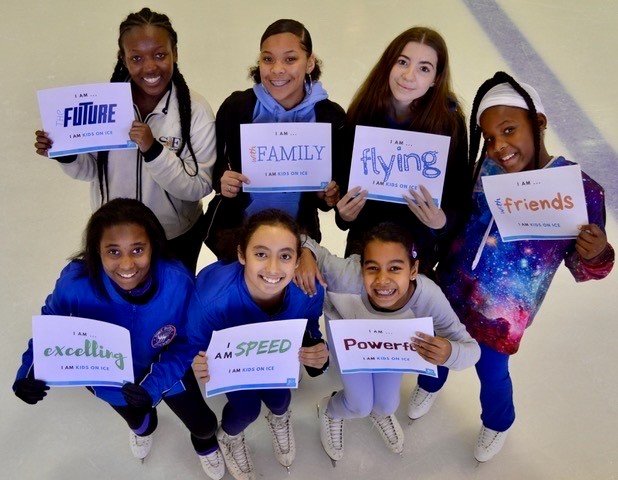U.S. Figure Skating announced today the recipients of the 2021-22 U.S. Figure Skating Community Development Grants. Ten member clubs and programs have been awarded $2,000 each for the purpose of developing community-based programs and events designed to attract, involve and inspire new generations of figure skaters.
A six-member selection committee reviewed 49 applications and awarded grants to those clubs and programs that were most effectively able to demonstrate how they would use the award to develop their initiatives. With increased funding and support provided by U.S. Figure Skating, the number of clubs and programs receiving support increased from six to 10.
“I am inspired by the many programs whose stated goal is to reach new skaters, specifically people of color,” U.S. Figure Skating President Anne Cammett said. “Each grant represents an opportunity to introduce a child and their family to the sport while welcoming them to the figure skating community.”
The 10 recipients, and how they plan to use the grants, are as follows:
- Central Virginia Skating Club will sponsor students to participate in the Richmond Ice Zone Learn to Skate USA program through a partnership with Richmond Behavioral Health. The organizations’ goal is to provide a healthy activity for disadvantaged children and adults and introduce figure skating as a fun, healthy and rewarding sport for all.
- Chicago Youth Foundation will engage more than 1,110 low-income youth with “Figure Skating on Your Block,” where youth will learn the foundations of ice skating and then choose to pursue figure skating or ice hockey. The program will include after-school educational enrichment classes, social-emotional training and fitness classes.
- District Impact Skating Club in Washington, D.C., will secure coaching for its synchronized skating teams to help reduce the cost of team skating. The synchro program is open to all Fort Dupont Ice Arena skaters who passed Free Skate 1 or pre-preliminary moves in the field and higher.
- Diversify Ice Foundation plans to provide people of color in low-income schools in the Greater Washington, D.C., area opportunities to learn, grow and advance in the sport of figure skating. The grant will cover ice time, equipment, coaching, mentoring and tutoring to help increase the visibility of figure skating within economic and culturally diverse communities.
- Friends of Fort Dupont Ice Arena will continue to grow its Kids On Ice Learn to Skate USA program. The program impacts nearly 5,000 children each year, many of whom reside in underserved communities in Washington, D.C. It introduces them to ice skating, giving them the opportunity to pursue figure skating, synchronized skating, ice hockey and speed skating.
- Friends of the Kelly Rink in Boston will expand its existing Learn to Skate USA scholarship program to provide full scholarships to 25 students who were unable to participate in the 2020–21 season due to COVID-19 restrictions. The scholarships will be provided to students who are 5 and 6 years old.
- Lockport (N.Y.) Skating School plans to increase its weekly Learn to Skate USA sessions to target ages 4 and up from lower-income families to promote social welfare and physical fitness. The program plans to use the grant to cover program fees for up to 50 new skaters, including safety helmets.
- Project ICE plans to increase skating opportunities to Hispanic, Latino and African American communities in Chicago’s North Shore neighborhood. The program will partner with schools to identify families that would benefit from private or group lessons. The program will also provide transportation and coaching.
- Scott Hamilton Skating Academy in Nashville, Tennessee, will provide free Learn to Skate USA lessons to reduce inclusion and financial barriers to youth ages 8 to 14. The program will also celebrate academic achievement by awarding an additional free skating camp to those displaying good school grades and attendance.
- The Skating Club of Phoenix will use the grant to award 25 families with two-month Learn to Skate USA packages, which include a weekly lesson, skate rental and eight public skating passes for children in foster care. The club will also research additional fundraising opportunities to increase the number of children who can receive free skating lessons.
The Community Development Grants, started by the Robert V. Hauff and John F. Dreeland Foundation, were established in 2010 with the purpose of providing funding to eligible member clubs and Learn to Skate USA programs throughout the United States. Formerly known as the Hauff and Dreeland Community Development Grant, the U.S. Figure Skating Community Development Grants are awarded to applicants who successfully demonstrate program plans that embody the principles of U.S. Figure Skating’s mission and will be strong role models in promoting the sport of figure skating throughout their communities.
For more information on the grants or any of the recipient programs, please click here or contact U.S. Figure Skating.


